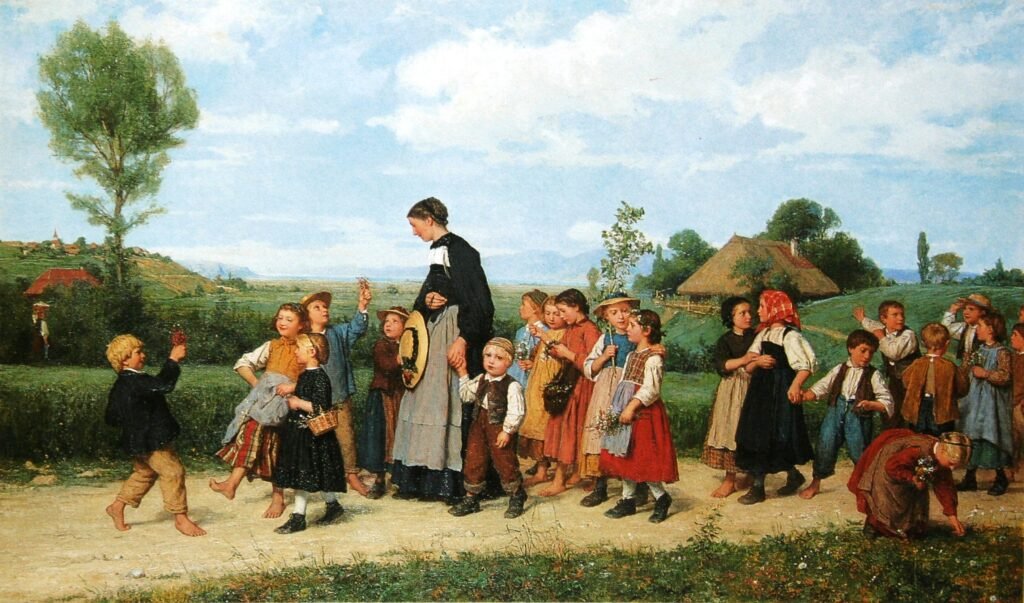What if the way we try to encourage our kids is actually doing the opposite?
In our effort to boost confidence, we often say things like, “Good job!” or “You’re so smart!” But research—and timeless educational philosophy—shows that praise can create approval addiction, while appreciation builds resilience, motivation, and inner strength.
Let’s unpack the powerful difference between praise and appreciation—and why it matters in your homeschool.
Praise vs. Appreciation: What’s the Difference?
- Praise evaluates:
“You’re such a good writer.”
“You’re the best helper.” - Appreciation observes and connects:
“I noticed how focused you were while writing that story.”
“Thanks for jumping in to help—it made a big difference.”
Praise focuses on the person. Appreciation focuses on the process and impact. One builds ego. The other nurtures identity and purpose.
Why Praise Can Be Harmful (Even When It Sounds Nice)
1. It undermines intrinsic motivation.
Carol Dweck found that kids praised for being “smart” often avoid challenges because they don’t want to risk failure. But kids who are appreciated for effort, persistence, and creativity become more courageous learners.
2. It creates external dependence.
Alfie Kohn warns that praise teaches kids to seek approval rather than to develop an internal compass. They start asking: “Am I good enough?” instead of “Was that the right thing to do?”
3. It shifts the focus away from connection and purpose.
Instead of being motivated by love, truth, or contribution, children begin performing for applause. Over time, this erodes authentic relationships.
What Charlotte Mason Taught About Praise
Long before modern psychology caught on, Charlotte Mason taught that children should not be motivated by praise, bribes, or rewards. Her reasons were rooted in deep respect for the child as a whole person.
“The love of praise… is liable to degenerate into a craving for notice.”
—Charlotte Mason, Home Education
Key Principles from Mason:
- Children are born persons. We are not sculpting them—we are supporting their growth with reverence.
- Praise breeds vanity. Too much praise leads to ego, not character.
- True education appeals to noble desires. Things like truth, duty, kindness, beauty—not approval.
- Masterly inactivity. Step back. Let the child reflect on their effort. Don’t rush in with your opinion.
Mason believed we should encourage children to do what’s right because it is right—not because it earns them a gold star.
Appreciation in Action: How to Shift Your Words
Try this simple 3-step structure:
- Observe the action:
“I noticed you kept trying even when it got frustrating.” - Acknowledge the effort or virtue:
“That shows a lot of perseverance.” - Connect to meaning or impact:
“That kind of effort really helps you grow.”
You’re not evaluating. You’re witnessing.
And if you’re not sure what to say? Try a question instead:
- “What are you most proud of?”
- “What did you learn from that experience?”
- “How did it feel to help your brother today?”
Why It Matters—For You and Your Child
When you trade praise for appreciation, something beautiful happens:
- Your child becomes more confident, not cocky.
- They are motivated by contribution, not attention.
- They grow into people who do good because they want to—not because someone is watching.
And as a parent? You get to step out of the exhausting role of judge and into the sacred role of witness and guide.
Final Thought: God Doesn’t Say “Good Job”
God doesn’t flatter us. He sees us.
“Well done, thou good and faithful servant…”
That’s appreciation. It notices effort. Faithfulness. Character.
Let’s model that kind of love to our children—one thoughtful comment at a time.

